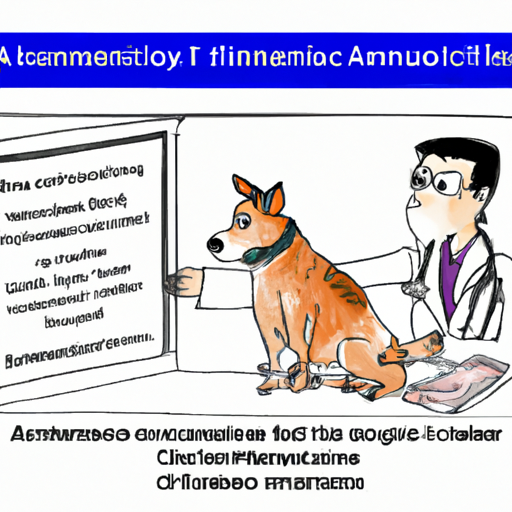Your pet is more than just a furry friend; he’s a part of your family. So, when your dog starts showing signs of discomfort or illness, it’s natural to be concerned. Autoimmune diseases in dogs can be tricky to diagnose, but knowing what to look for and how to go about testing can be crucial. Here’s a guide to help you navigate this challenging process.
1. Understanding Autoimmune Diseases in Dogs
Autoimmune diseases occur when your dog’s immune system starts attacking its own cells, mistaking them for foreign invaders. This can result in a wide variety of conditions, depending on which cells are being targeted. Some common autoimmune diseases in dogs include rheumatoid arthritis, lupus, and immune-mediated hemolytic anemia (IMHA).
2. Recognizing the Symptoms
Symptoms of autoimmune diseases in dogs can vary greatly depending on the specific disease. However, some common symptoms include:
- Decreased appetite
- Weight loss
- Lethargy
- Fever
- Skin abnormalities
- Joint pain
- Anemia
3. The Testing Process
If you suspect your dog might have an autoimmune disease, the first step is to consult with your vet. They will likely perform a series of tests including:
- Blood tests: These can reveal if your dog’s immune system is overactive.
- Autoantibody tests: These can help identify specific autoimmune diseases.
- Biopsies: In some cases, your vet may suggest a biopsy to get a clearer understanding of what’s happening.
| Test Type | Purpose |
|---|---|
| Blood tests | Check for overactivity in the immune system |
| Autoantibody tests | Identify specific autoimmune diseases |
| Biopsies | Get a clearer understanding of the condition |
4. Treatment Options
The treatment for autoimmune diseases in dogs will depend on the specific disease your dog has been diagnosed with. However, treatment typically involves medications to suppress the overactive immune system and relieve symptoms. In some cases, hospitalization may be required.
5. Caring for a Dog with an Autoimmune Disease
Caring for a dog with an autoimmune disease can be challenging, but your love and commitment can make a huge difference in your dog’s life. Here are some tips:
- Ensure your dog is taking all prescribed medications.
- Regular veterinary check-ups are crucial.
- Maintain a balanced diet and regular exercise routine for your dog.
- Keep your dog comfortable and stress-free as much as possible.
Frequently Asked Questions
Q: Can autoimmune diseases in dogs be cured?
A: Unfortunately, there’s no cure for autoimmune diseases. However, they can often be managed with the right treatment and care.
Q: What causes autoimmune diseases in dogs?
A: The exact cause of autoimmune diseases in dogs is not known. However, genetic factors, certain infections, and environmental triggers may play a role.
Q: Can my dog live a normal life with an autoimmune disease?
A: With the right care and treatment, many dogs with autoimmune diseases can live healthy, happy lives.
Remember, your dog relies on you for their health and well-being. If you suspect your furry friend might be suffering from an autoimmune disease, don’t hesitate to consult with a vet. Your vigilance can make all the difference in ensuring your dog gets the best possible care.



